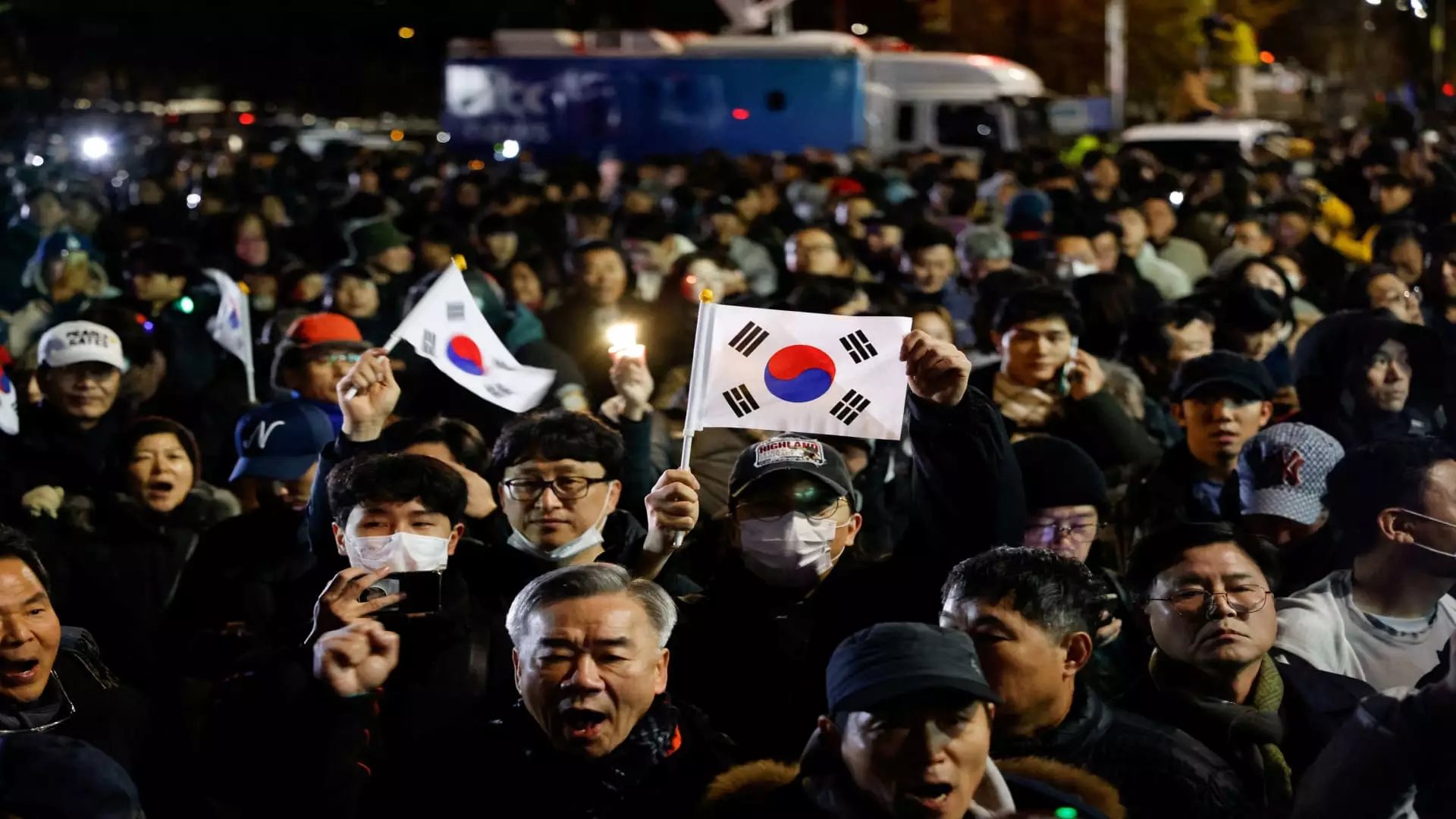The South Korean financial landscape is reeling from the immediate repercussions of political unrest, marked by recent actions taken by President Yoon Suk Yeol. After a proposed martial law that sparked widespread unrest and protests demanding Yoon’s resignation, the Kospi and Kosdaq indices have suffered significant declines of 1.8% and 2.4%, respectively. The atmosphere is fraught with tension, as opposition lawmakers prepare to introduce an impeachment bill against Yoon, which could escalate the political crisis further.
Yoon’s rapid decision to impose and then rescind martial law within just hours has left many questioning the stability of his administration. This abrupt change has not only drawn criticism from the public and opposition leaders but has triggered fears of lasting economic instability. Adding to this tumult, reports indicate that Yoon’s chief of staff and senior advisers are contemplating resigning en masse, highlighting a possible exodus within his cabinet.
In response to this alarming situation, the Bank of Korea held an emergency meeting, announcing a series of measures aimed at reinforcing short-term liquidity and stabilizing the foreign exchange market. Such interventions are crucial in restoring investor confidence, especially when the nation grapples with inflation and currency depreciation. The Bank of Korea has pledged to deploy special loans to inject necessary funds into the market, reflecting its commitment to counteracting the negative effects of the political crisis.
Additionally, authorities have hinted at the readiness to mobilize an impressive 10 trillion won ($7.07 billion) for a stock market stabilization fund, which underscores the seriousness of the situation. It’s indicative of how markets react not just to economic statistics, but also to political developments, as seen through the swift response from financial regulators.
The political chaos in South Korea has had ripple effects across the Asia-Pacific, with other markets reflecting caution amidst regional uncertainty. Japan’s Nikkei 225 and Topix indices both posted declines of 0.4%, while Australia faced a similar fate. The S&P/ASX 200 index fell by 0.38%, impacted by slower-than-expected GDP growth coupled with persistent inflation pressures. Such declines indicate that investor sentiment remains tenuous and heavily influenced by geopolitical and economic factors.
Meanwhile, the South Korean stocks faced extreme volatility as the iShares MSCI South Korea ETF plummeted to a 52-week low before partially recovering by the end of the trading day. This trend reveals how intertwined political stability is with stock market performance, especially within a rapidly changing global economy.
In juxtaposition, U.S. markets saw a different trajectory, with the S&P 500 and Nasdaq attaining record closes, albeit with the Dow lagging behind. This divergence highlights the complexities of the current economic climate, suggesting that geopolitical tensions in one region can yield varying responses in others. As the global market continues to respond to these developments, it will be essential to monitor how South Korea’s political landscape evolves and what implications it may have for broader economic conditions in the region and beyond.
As South Korea grapples with political turmoil and economic uncertainty, both immediate and longer-term impacts will decisively shape the landscape for investors and policymakers alike. The situation remains fluid, and the resilience of the financial markets will ultimately be tested in the coming days and weeks.


Leave a Reply